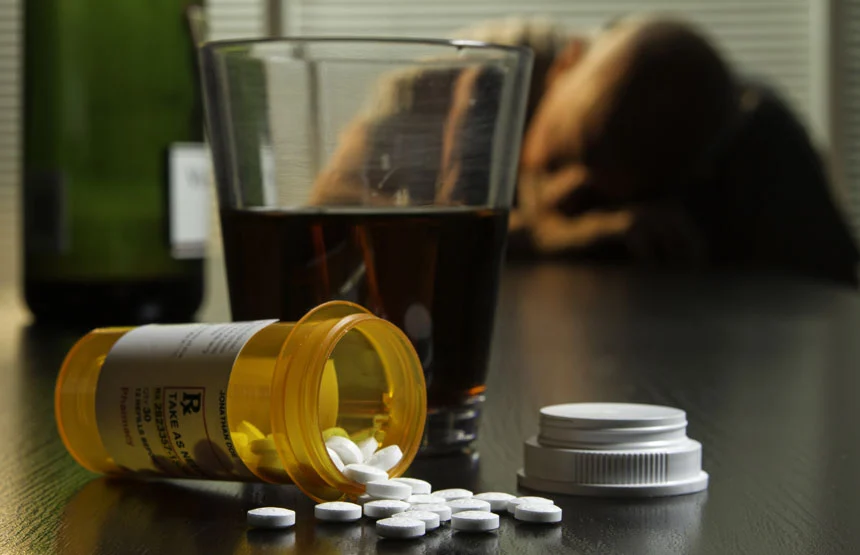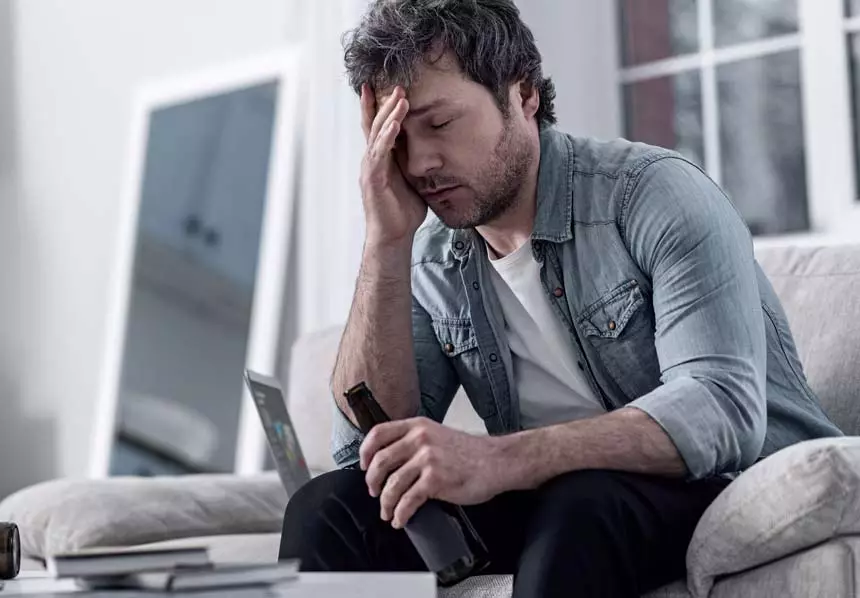The Risks of Mixing Depressant Drugs
Table of Contents
If there is one thing we can learn from the dozens of overdose deaths of our well-known celebrities over the past decade, it is that alcohol and benzos do not mix. That sounds a little dark, but if we think back to the losses of our beloved cinematic heroes such as Heath Ledger and Brittany Murphy, we find that there is a direct correlation between the dangers of self-medicating; mixing alcohol and benzodiazepines in a deadly combination that depresses breathing and body function.
Even with the proof in the pudding, why are some people still so willing to gamble with the deadly duo, and why exactly is it so deadly? Keep reading to find answers!
24 Hour Alcohol Rehab Hotline – Get Help Now
877-959-7271
Alcohol and Benzos – A Deadly Combination
Here is the deal, alcohol is a sedative. While I know that most people use it to have a good time and get wild on the weekends, when we are talking about people who suffer from drug and alcohol addiction, alcohol is primarily used as a means of escape, as a way to shut the mind off for a while, although it usually backfires. While on the other end of the spectrum, and almost equally as accessible these days, Benzos are also a very potent sedative.
These medications have been created strictly for the purpose of, to put it simply, quieting the mind. Medications such as Xanax, Klonopin, Lorazepam, and Valium are commonly used to quiet anxious thoughts, help with sleep difficulties, and even as a side medication for people who struggle with depression and bipolar disorders.
Combining alcohol and sedatives, as both are central nervous system depressants, will put the user on the fast track to excessive and potentially fatal levels of sedation. Albeit, that is the feeling most users are looking for. However, too much sedation can trigger the brain to no longer function, AKA, slipping into a coma, respiratory depression, and even cardiac arrest.
A recent Center for Disease Control (CDC) analysis found that nearly 30% of all drug-related deaths were associated with benzodiazepines. SAMHSA’s Drug Abuse Warning Network (DAWN) found that alcohol use was linked to over 27% of all emergency department visits necessitated by benzodiazepine abuse, and to 21% of all deaths linked to this form of substance abuse in 2010. The majority of sedative and alcohol-related deaths were due to suppressed respiratory functioning.
Alcohol – So Why do We Do It?
For most people that use drugs and alcohol as a means to escape, an addiction has already been formed. For people who suffer from addiction and have been prescribed benzos as a means to deal with their underlying depression and anxiety, it becomes increasingly easy to always have some extra pills lying around that can be washed down with a glass of wine.
In today’s society, people have become increasingly prone to taking prescription medications not only to combat serious disorders like depression and anxiety but for many, sedatives are used simply to ease the worries of everyday life, with the highest percentage of prescribed patients being between 15 and 45.
Therein lies a great contradiction in the medical and social psyche, where people are led to believe that as long as what they are taking has been prescribed to them via a licensed practitioner, it cannot be harmful or addictive. However, as the user continues to take their prescribed benzos, the receptors in the brain that process the ingredients become tolerant over time, requiring a larger dose to get the job done.
With that increased tolerance to the medications, comes the introduction of more and more alcohol for many users. Obviously, alcohol gets the job done quickly. Most drinkers know just how much it will take to get them to their desired state of mind, not to mention, that it can be bought on every street corner in America.
The Most Dangerous Part of Alcohol
What goes up, must always come down. If a user lucks out and doesn’t suffer from cardiac arrest or respiratory failure in their sleep, chances are they will hit a wall sooner or later. Herein comes the detoxification process. Alcohol and Benzos are the ONLY drugs that require hospitalization for those looking to stop using. These two are the most dangerous chemicals to detox from as they commonly represent side effects such as delusions, severe convulsions, psychosis, mania, respiratory arrest, and suicidal ideations.
The individual or even combined use of either of these two drugs is the only one that can actually cause death when a user abruptly stops using them. It requires a longer-term detoxification process, as the user must be gradually tapered off of the substances. The benzos are usually long-acting and are built up in stores in the brain, and can severely hinder brain functioning when the user stops abruptly.
Medically supervised detox allows for a smooth and comfortable detoxification process that can give the user access to therapeutic alternatives for any pain they may experience as well as psychological monitoring as their brain returns to a healthy level of functioning while the medications are filtered out.
The upside to all of this is that when users finally sober up a little bit, they have the option to live a new way of life. For users who participate in long-term treatment, the accessibility to extensive therapy and 12 step programs open patients up to a whole new world of recovery.
24 Hour Addiction Treatment Hotline – Get Help Now
877-959-7271
Freedom From Alcohol and Benzos: Found Here!
If you have found yourself or a loved one suffering from alcoholism or addiction, you are not alone! If you are ready to change your life and live free of addiction, then Find Addiction Rehabs can help. We give you the jump start to recovery you need through placement at rehab facilities matched to your needs.
Give yourself a break and reach out to our team of recovery representatives for a confidential call today!
Deborah Tayloe is a freelance writer specializing in health and sciences. Deborah earned a B.S.Ed. in Secondary Education/English, accompanied by a Spanish minor. Her writing expertise allows her to craft engaging, impactful articles to help people be well.
In addition, she holds a fully accredited Certificate of Natural Medicine and is a certified Herbalist. Through her understanding of complementary medicine, Deborah helps medical professionals give people the information they need to embrace natural approaches to wellness.
When she’s not working, Deborah trains for 5K races and advocates for animal rights.



